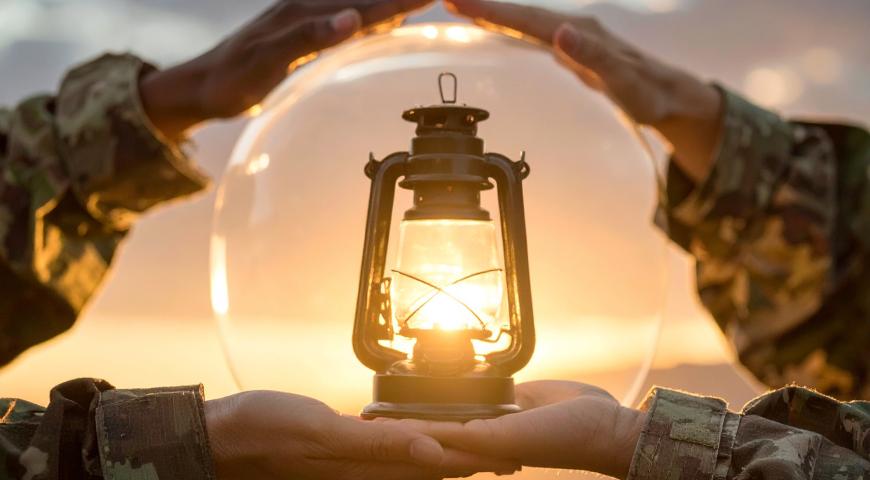Trav Hallen
I write because I am angry. That is probably not what The Forge editors were looking for when they asked me to contribute to this series, but hear me out; there is a nuance in that statement.
Writing is the transfer of the confusion of thoughts chaotically circulating your mind on to a screen or notepad. The writing process forces you to make sense of this confusion and come to terms with your thoughts and beliefs. As British novelist E.M. Forster put it: ‘How do I know what I think until I see what I say?’
When writing for an audience, you engage in a one-sided, one-shot argument. To have any hope of winning that argument, you need to articulate your ideas clearly, succinctly, and persuasively. Though difficult, at times excruciatingly so, this process forces you to think more deeply about the issues in question than if you were debating the same issue verbally.
I would hazard a guess that many of the writers contributing to this series will hold a similar view on the role of writing in developing and expressing their thoughts. Writing to think is a common motivator. Where writers differ is the why and what they want to think about, which brings me back to the nuance of my opening statement.
I am a pragmatic optimist. I am optimistic that the Australian Defence Force (ADF) is making the necessary adjustments to its course to prepare for the challenges of future operations. However, I am pragmatic enough to understand that organisational inertia will hinder the turn. The inertia frustrates me. Frustration leads to anger when I believe that the hindrances are illogical and ill-founded. I say believe because often I am wrong. I write to help me think through my frustrations and to figure out what is justified and what I should rail against.
Not surprisingly, this approach means that I have many half-finished drafts sitting in the cloud. Some await more research to enable me to overcome a logical or evidentiary impasse in my thinking. Others I stopped writing when I realised that I was wrong. Although many of these drafts will never see the light of the day, the effort put into them was not wasted. My thinking has advanced on the issues they cover and, in most cases, I am a lot less angry.
I believe that writing as a form of anger therapy is sufficient justification in and of itself, but not for publication. Written tirades are best limited to the 280 characters of Twitter posts. I write for publication to persuade and influence people. I cannot remove the barriers that impede necessary progress; however, I can identify and recommend to those with such power new paths that the ADF could potentially take. In an organisation that has legitimate concerns over critical public comment from its members, such critical writing can be fraught.
When we started The Central Blue in September 2016, we drew inspiration from Grounded Curiosity and The Dead Prussian. These two ground-breaking efforts demonstrated that there is scope, interest, and, most importantly, support for military writing and debate in Australia. Assuring senior officer and organisational support for, or at least indulgence of, the blog was our biggest concern. Fortunately, we began publishing at a turning point in senior officer attitudes towards public debate. As then-Chief of Air Force, Air Marshal Davies stated in a 2017 interview with The Central Blue:
Air power is not a static concept; rather, it must be studied, reflected upon, debated, and challenged. As airminded members of the profession of arms, Air Force personnel have a responsibility to participate in this contest of ideas. It is far, far better that we should respectfully engage in that contest than to hide our thoughts, only to find them wanting when it matters most.
The military writing ecosystem has grown significantly since 2016. Clare O’Neill’s Guide to the Profession of Arms Network illustrates the scale of the military blogosphere, both in Australia and abroad. The editors of most of these outlets, particularly those run by the services, such as The Forge and The Land Power Forum, and those run by current or former serving members, such as The Central Blue, Logistics in War and Chesterfield Strategy, assist in finding the balancing point between constructive and productive criticism, and adherence to defence policy.
A discussion of finding balance in military writing was a diversion, but a necessary one. Concern over falling foul of Defence policy on public comment is a barrier for many potential military writers considering jumping into the dignified melee of the ADF’s contest of ideas. It is no longer a barrier for me. I have confidence in both senior leadership support for appropriate debate over ideas, and the ability of the Australian blogosphere’s editors to assess appropriateness.
Another barrier is the want of ideas. When doing staff work—the principal or only form of non-email writing most military members do—the topic and subject is generally defined for you. That is not usually the case when writing for publication. Developing topics to write about can be particularly challenging when your day job requires you to work with classified information. Fear of spillover is a strong deterrent to writing. The solution that I have found is: Don’t write about your day job.
Instead, I read broadly and draw insights from other areas into the military context. Some of the military writing that I have found most enjoyable to read is that which brings unique perspectives, gained from unlikely sources, into our profession. Olivia Garard’s use of Alice’s Adventures in Wonderland to discuss the Clausewitzian concept of genius remains one of my favourite articles. More recently, the Strategy Strikes Back collection of essays that uses Star Wars to help explain concepts of strategy and war made reading on strategy actually enjoyable. Indeed, fiction has become a useful source of topics as well as a genre of choice for military writers.
Fiction is an area where I am trying my hand, though I have much work to do before I have anything worthy of public consumption. For now, I am sticking to pieces inspired by readings in non-military areas. I have two articles currently sitting at various stages of drafting. One discusses the role of breadth and specialisation in developing future airmen; it is based on David Epstein’s findings in Range: Why generalists triumph in a specialist world. The other is a perspective on developing multi-domain commanders that draws on Peak: Secrets from the new science of expertise and The MVP Machine: How baseball’s new nonconformists are using data to build better players. Whether these pieces get published is anyone’s guess, but that is not the point. Through writing, I am better able to understand and appreciate how concepts from outside the military domain aid in addressing some of the issues the ADF is facing.
Which leads me to make a heretical statement: do not guide your reading based on lists produced by anonymous staffers and endorsed by the Chief. I do not base my reading on lists that have not been personally developed by an individual who has read the books recommended. A good friend and fellow traveller gave me that advice earlier this year; it is something I wish I had thought about sooner. Ask people you respect what they are reading and why, and look at the reviews of books on blogs and in magazines to see what grabs your attention and interest. As author Ryan Holiday puts it:
Every time I would meet a successful or important person I admired, I would ask them: “What’s a book that changed your life?” And then I would read that book … If a book changed someone’s life — whatever the topic or style — it was probably worth the investment.
Finally, and perhaps most importantly, I need solitude. By solitude I don’t mean a cabin in the woods, though that would be nice, rather I mean a ‘state of mind, in which the mind, isolated from input from other minds, works through a problem on its own’. How else is it possible to make sense of the torrent of information that we continually ingest into our minds? For me, pursuing this solitude led to my disconnection from social media. This has not only given me cognitive solitude it has also freed up time to read more deeply and broadly. Finding and protecting solitude has been the key to translating my anger and frustration into serenity and positive contributions to helping the ADF get where it needs to be.
We all write for our own reasons. I’d like to thank The Forge for giving me the opportunity to think and write about what my reasons are. It has made me a little less frustrated.
Wing Commander Trav Hallen is a serving Australian Defence Force officer and founding editor of The Central Blue. The views expressed are his alone and do not reflect the opinion of the Royal Australian Air Force or the Department of Defence.
Technical Mastery
Social Mastery
Please let us know if you have discovered an issue with the content on this page.
Comments
Start the conversation by sharing your thoughts! Please login to comment. If you don't yet have an account registration is quick and easy.




